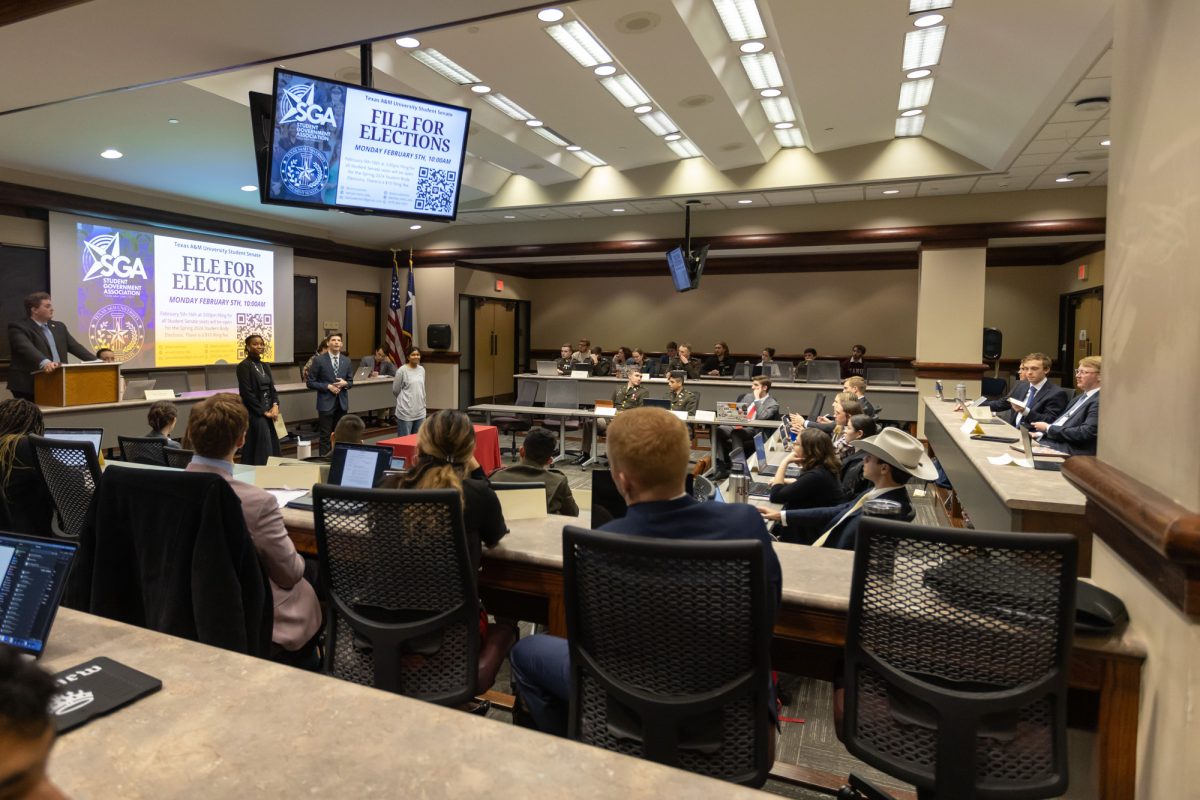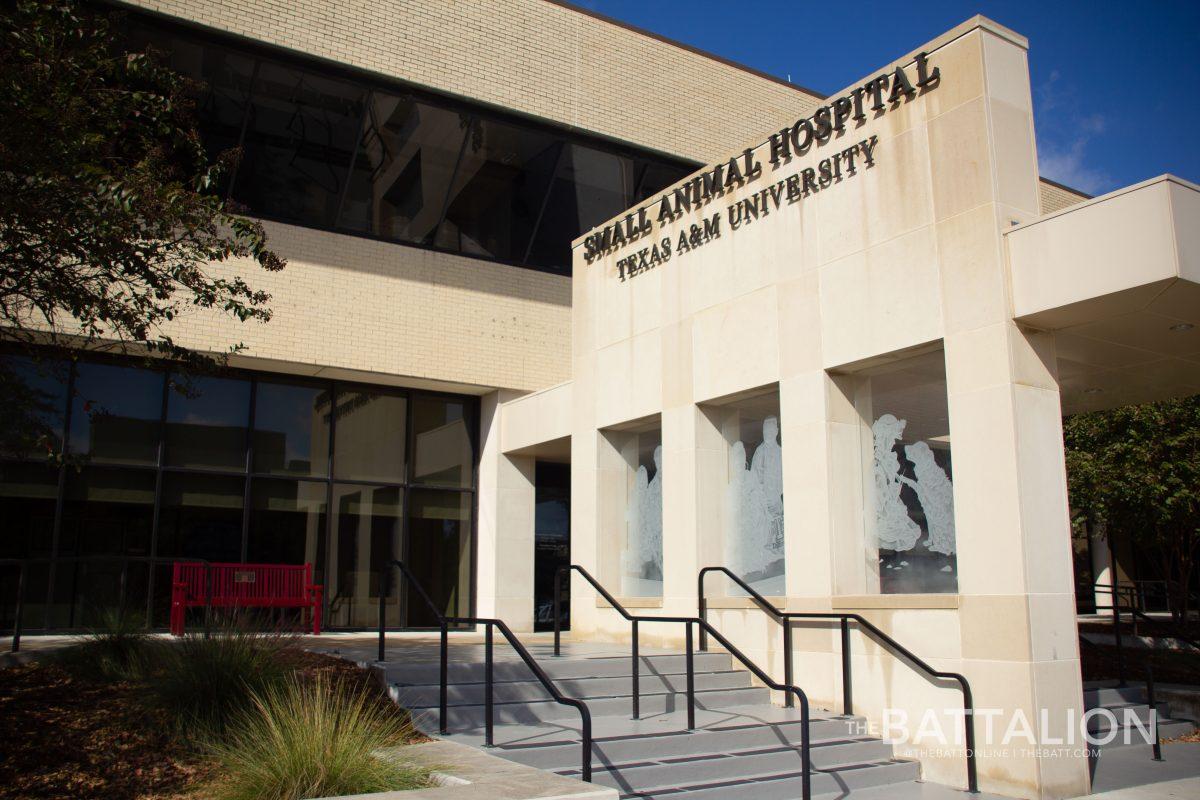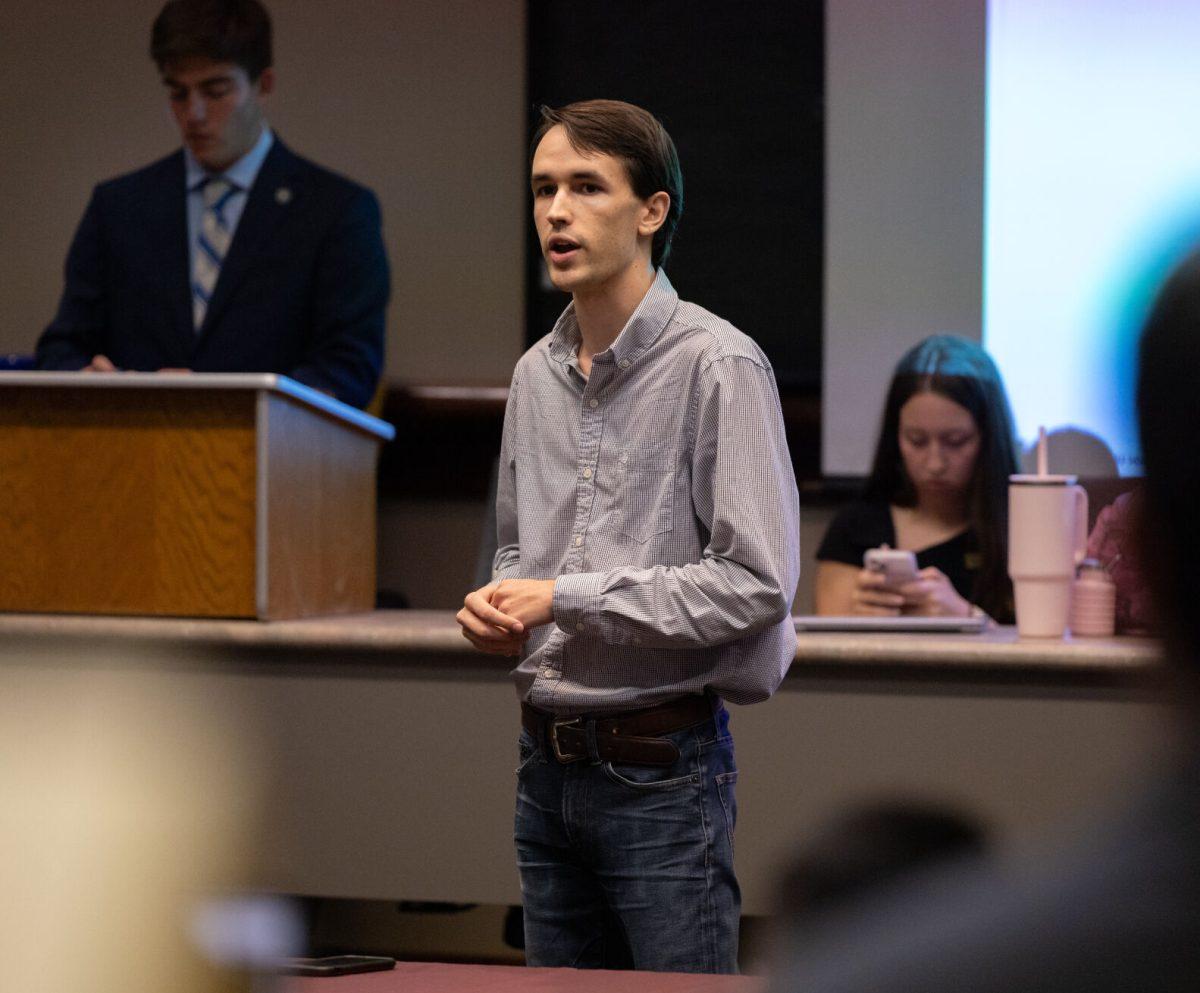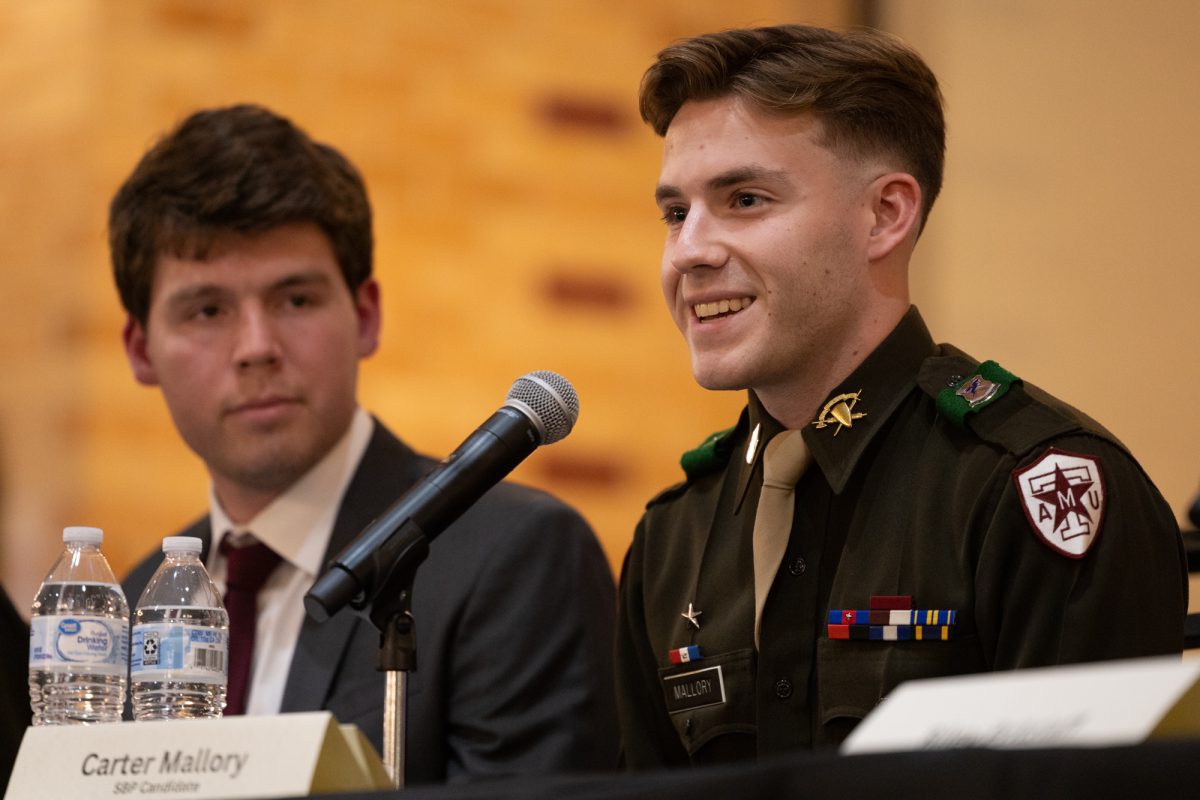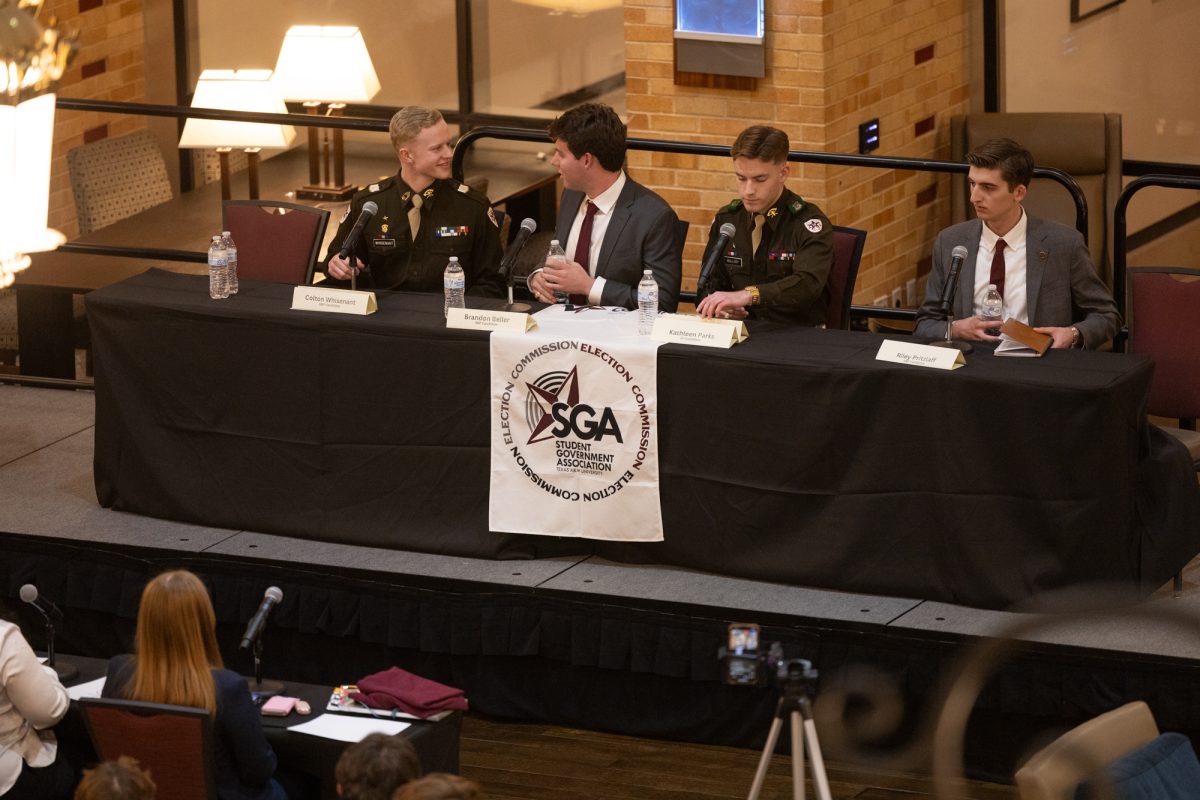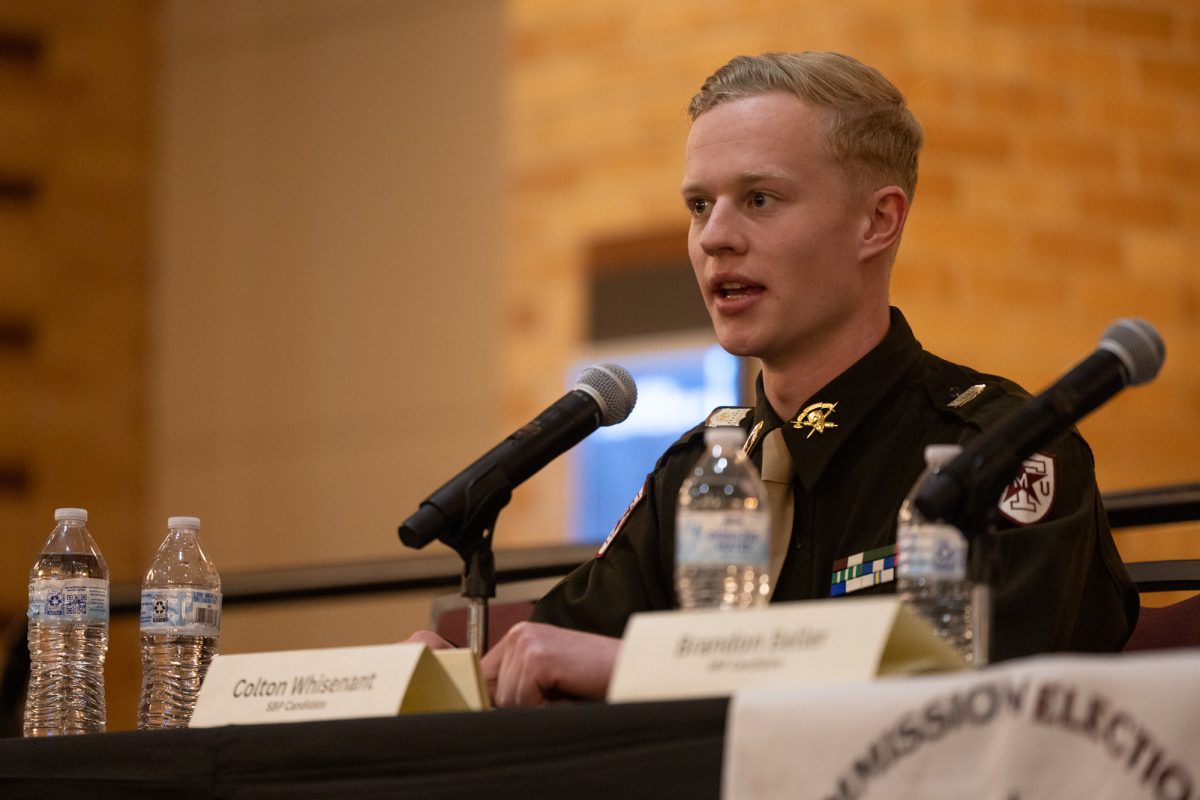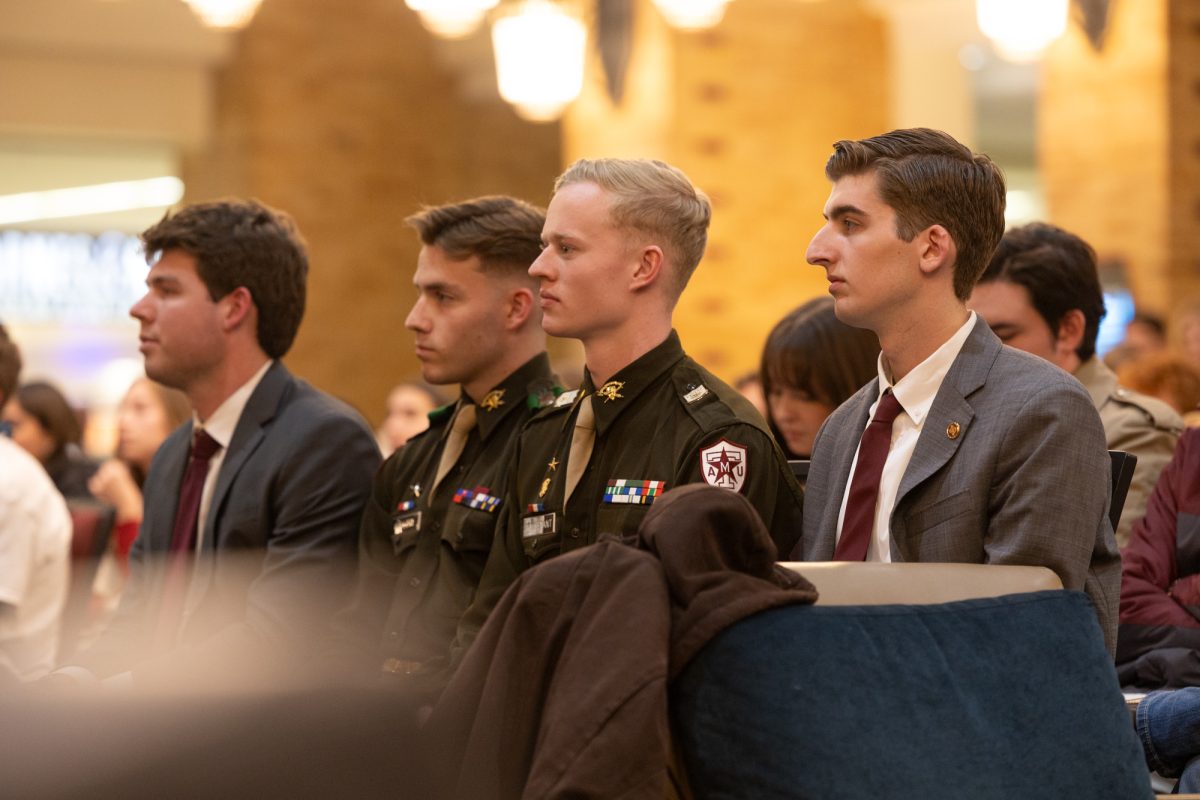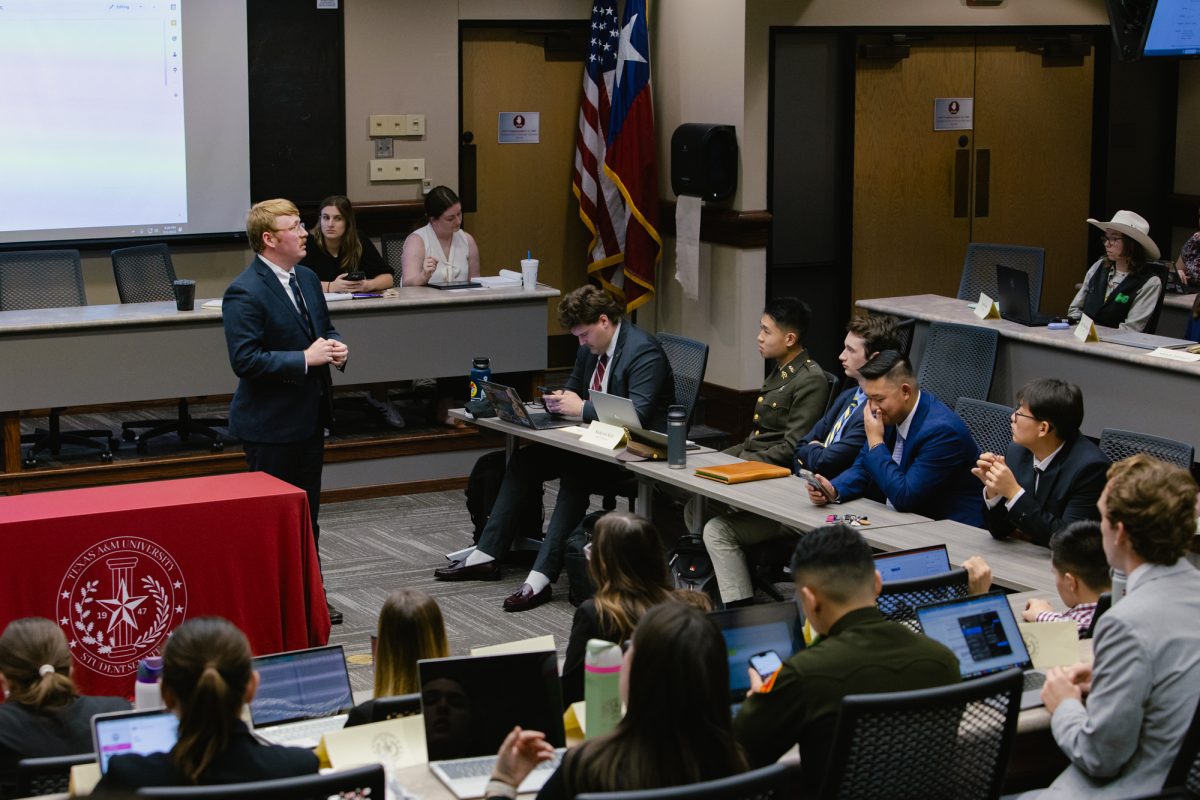In its first meeting of the semester, the Texas A&M Student Senate picked up the debate on the Student Body Vice President Act vetoed in December.
The Student Senate failed to override Student Body President, or SBP, Andrew Applewhite’s veto of the legislation by a vote of 26-23 on Jan. 24. This legislation would have made the student body vice president position electable by the student body.
Despite the legislation passing in the Student Senate by a count of 32-4 when it was initially introduced, the Student Senate failed to meet the 75% requirement to override his veto. This requirement exists because this legislation was introduced as an amendment to the constitution of the Student Government Association, or SGA.
Diversity and Inclusion Chair Benjamin Prewitt said having more opportunity for the student body to vote is more valuable than giving the executive branch more power to choose who inhabits it. Prewitt also emphasized the importance of having another elected official behind the SBP in the line of succession.
“The entire purpose of having this position be elected was so that to ensure that if the presidency is vacated because of illness, impeachment or some other reason, that the person who succeeds the president is an elected official,” Prewitt said.
While the presidency has had multiple impeachment attempts and resignations, the impeachment of former SBP Hudson Kraus raised concerns about the current line of succession for the presidency.
While the current vice president position is not elected by the student body, the SBP’s selection for the position must be confirmed by the Student Senate under the current system. The student senators are all individually elected by the student body.
“Our [Student Senate’s] confirmation of the vice president is the voice of the student body,” Legislative Relations Chair Corbitt Armstrong said. “To say that we cannot accurately represent the student body in our confirmation is to say that we shouldn’t be here doing this at all.”
Armstrong said the idea that every person in student government needs to be elected by the student body would invalidate all the appointments of every previous administration of the Student Senate at A&M.
Following the Jan. 24 meeting, SBP Applewhite offered timing as his main reason for his veto of the legislation. However, the veto pushed the constitutional change close enough to the upcoming election to force this potential change to take effect in next year’s election cycle at the earliest. After acknowledging that timing was no longer an issue, Applewhite said another concern of his was the haste of this decision.
“The meeting this piece was passed, many senators floated the idea of tabling this to do more research,” Applewhite said in a Jan. 25 statement. “However, this idea was never voted on and, instead, the piece was voted on that night.”
Applewhite said he did not believe that this vote was truly representative of the student body. Many senators had already left the meeting to study due to this vote taking place at around midnight on the Wednesday of the week before finals last semester, Applewhite said.
“The executive vice president has traditionally been someone who is elected on their own merit for the job rather than their electability,” Applewhite wrote. “This creates a good working relationship between the executive cabinet, the administration and the rest of SGA.”
Applewhite also reinforced his confidence in his conclusion due to the advice he has received from past SBPs about the issue and the support that his side of the argument received from the Senators themselves as the majority of them voted to uphold Applewhite’s veto.
“The majority of the senate ended up agreeing with this sentiment, so I’m very confident this was the true opinion,” Applewhite wrote. “I’m so glad to see that the senate continues to have hard conversations and discuss how to truly serve this university as effectively as possible.”




